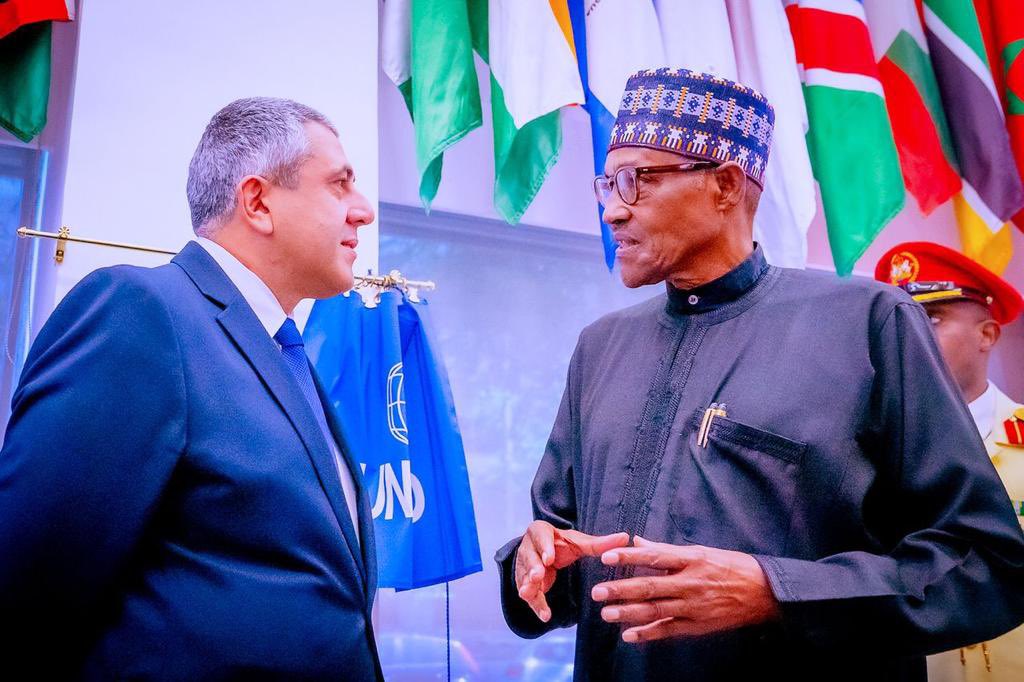Business
FG, States, LGs Share N2.429trn In Three Months

The three tiers of government comprising Federal, State, and Local, have shared N2.429 trillion from the Federation Account from June to August, 2022.
The amount is made up of statutory distributions, Value Added Tax (VAT), and others that goes to collecting agencies such as the Nigeria Customs Service (NCS) and the Federal Inland Revenue Service (FIRS).
Data available to The Tide’s source stated that the Federal, State and Local governments got N673.137 billion in August, N954.085 billion in July and N802.407 billion in June.
Under statutory disbursements, which is derived after VAT and cost of collection are deducted from the total distributable revenue that accrues to the Federation Account at the end of every month, N1.823,369 trillion was shared among the Federal, State and Local Government councils.
In the three months, the Federal Government received N437.871 billion; State governments received N776.918 billion, while Local governments got N608.580 billion, thus bringing the total statutory disbursements between June and August to N1.823,369 trillion.
Under the proceeds from VAT, a total allocation of N586.26 billion was made to the benefiting governments in the three months reviewed. In August, the three governments got N215.266 billion, in July, N177.167 billion, and in June, N193.827 billion.
From June to August, the FIRS, Customs and other revenue-generating agencies that are entitled to the cost of collection received and shared N35.487 billion in August, N47.254 billion in July and N44.606 billion in June, 2022, bringing the total for the three months to N127.347billion.
After making all the deductions, the remainder known as the ‘total distributable’ was shared as follows: Federal Government in August received, N259.641 billion, in July N406.610 billion and in June, N321.859 billion. So, in the three months, the Federal Government got N988.11 billion.
Within the same months, the state governments received N222.949 billion in August; N281.342 billion in July and N245.418 billion in June – all amounting to N749.709 billion.
Transport
Automated Points Concession : FAAN Workers Gave 72hrs To Revise Decisions In PH

Transport
FAAN Announces Pick-Up Points for Go-Cashless Cards

Business
Fidelity Bank To Empower Women With Sustainable Entrepreneurship Skills, HAP2.0
-

 News4 days ago
News4 days agoAmend Constitution To Accommodate State Police, Tinubu Tells Senators
-

 Politics4 days ago
Politics4 days agoSenate Urges Tinubu To Sack CAC Boss
-
Business4 days ago
Crisis Response: EU-project Delivers New Vet. Clinic To Katsina Govt.
-
Business4 days ago
President Tinubu Approves Extension Ban On Raw Shea Nut Export
-

 News4 days ago
News4 days agoDisu Takes Over As New IGP …Declares Total War On Corruption, Impunity
-
Business4 days ago
Fidelity Bank To Empower Women With Sustainable Entrepreneurship Skills, HAP2.0
-
Business4 days ago
President Tinubu Extends Raw Shea Nuts Export Ban To 2027
-
Sports4 days ago
NDG: Rivers Coach Appeal To NDDC In Talent Discovery

